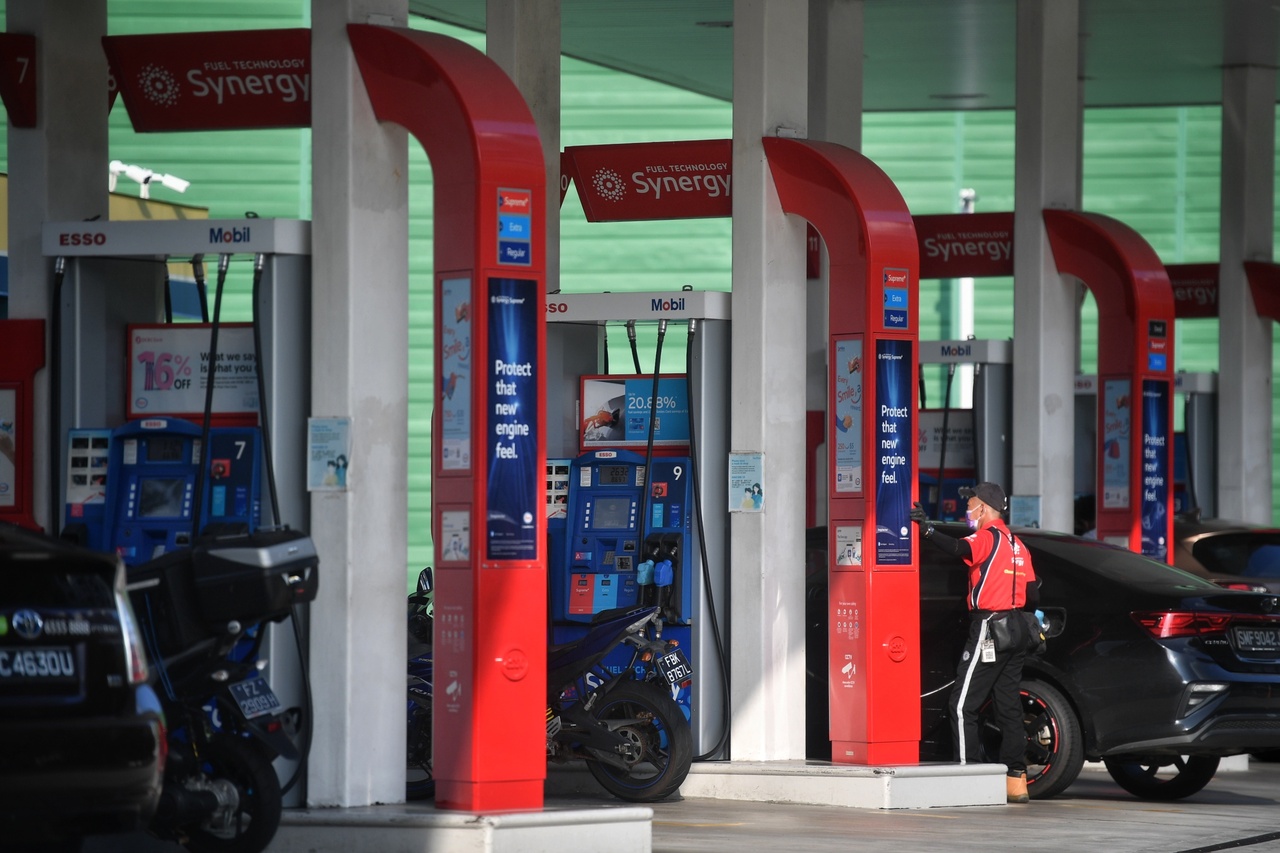Fuel duties help Singapore achieve net zero emission targets: Lawrence Wong
Sign up now: Get ST's newsletters delivered to your inbox

Any move to suspend or cut petrol and diesel duties would amount to a subsidy on private transport, said Mr Lawrence Wong.
ST PHOTO: ARIFFIN JAMAR
Follow topic:
SINGAPORE - Even as Singapore works to tackle the immediate problem of inflation, it should take a broader perspective where fuel duties are concerned, said Finance Minister Lawrence Wong on Monday (April 4).
He pointed out that such taxes are an important part of the country's plans to achieve net zero emissions and become a greener economy.
"We all talked about wanting to move greener, wanting to embrace more energy-efficient modes of transport - a point which everyone supported, incidentally, in this House not too long ago," Mr Wong told Parliament.
"And then now, at the first sign of prices rising, we are wanting to withdraw so quickly? Let's have some perspective in seeing the broader considerations and challenges."
The minister had earlier delivered a statement on inflation and business costs in Singapore, in which he set out the Government's stance on fuel duties and road tax rebates.
Any move to suspend or reduce petrol and diesel duties would amount to a subsidy on private transport, and benefit a small group of people who are already more well-off, he said.
It would also see some subsidies flowing back to fuel producers and suppliers, instead of just benefiting consumers.
Mr Murali Pillai (Bukit Batok) pointed out that petrol duties were last raised in February last year, when no one could have predicted that the Ukraine war would take place and result in fuel prices going up.
He asked when the Government would consider cutting fuel duties, given how much these impact business costs.
Mr Wong responded that the revenues generated by such taxes are not small, and are used to subsidise public transport, among other things. "So we should think carefully about giving up these sources of revenue, particularly when we are facing considerable revenue challenges already."
The minister also pointed out that fuel duties price in negative externalities that result from the use of petrol and diesel. It would not be consistent for Singapore to progressively raise carbon taxes - as it is currently doing - while reducing fuel duties, he said.
"We will help people who are affected... We have been helping, and we will continue to monitor the situation. For those who need more help, if the situation worsens, we will certainly do more," Mr Wong added.
"But the better way of helping is not through a reduction in fuel duties. The better way of helping is to directly help those who are impacted through other means."
Mr Xie Yao Quan (Jurong GRC) then asked about the possibility of cutting just diesel duties, as many delivery vehicles rely on diesel fuel.
Mr Wong reiterated that the issue of negative externalities remains whether the fuel in question is diesel or petrol.
"We have, indeed, an immediate issue of inflation to tackle," he said. "But we also want to press ahead with our net zero plans and our green transition. These duties are there... for that important purpose."
This does not mean that the Government will not do anything to help affected groups, such as cabbies and private-hire car and delivery drivers, Mr Wong added.
"We will do more to help them, but we will help them directly, more effectively - rather than through a reduction in duties."

